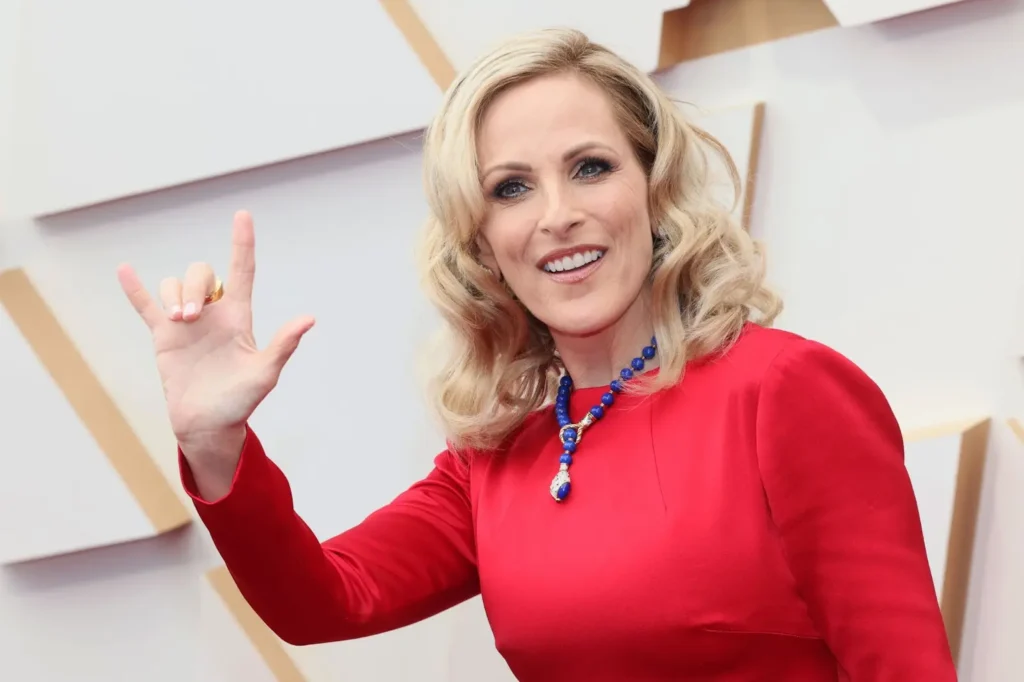
A Heartfelt Goodbye to a Legend
I was scrolling through X a couple of days ago when I saw Marlee Matlin’s post about Robert Redford. It stopped me in my tracks. She called him a “genius” and thanked him for Sundance, the festival that launched her film CODA into the spotlight. Redford passed away on September 16, 2025, at 89, and the news hit Hollywood hard. But Matlin’s words felt personal, like a friend sharing a memory that meant the world to her. Her post, with over 20,000 likes and counting, got people talking—not just about Redford, but about Matlin, her groundbreaking career, and the way CODA changed the game for deaf representation in film.
Marlee Matlin: A Trailblazer’s Journey
I’ve always admired Marlee Matlin. She’s not just an actress; she’s a force. She won an Oscar for Children of a Lesser God back in 1986, becoming the first deaf performer to take home that gold statue. At 21, she was out there breaking barriers, showing the world that deaf actors could lead major films. Fast forward to 2021, and she’s a producer on CODA, a movie that didn’t just win hearts—it won Best Picture at the Oscars, the first film with a mostly deaf cast to do so. That’s huge. And reading her tribute to Redford, I realized how much of that success ties back to him and his vision for Sundance.
Sundance and the Rise of CODA
Robert Redford wasn’t just the guy from Butch Cassidy and the Sundance Kid or The Sting. He was a dreamer who wanted to give independent filmmakers a shot. He started the Sundance Film Festival in 1981 to do just that—create a space where stories that didn’t fit Hollywood’s usual mold could shine. CODA was one of those stories. It’s about a teenage girl, Ruby, who’s the only hearing member of her deaf family, balancing her dreams of singing with her family’s reliance on her as their interpreter. Matlin played the mom, Jackie, with this raw, funny, heartfelt energy that made you feel like you were right there in their fishing-town world. When CODA premiered at Sundance in 2021, it won the Grand Jury Prize and the Audience Award. That’s when the buzz started, and it didn’t stop until it had three Oscars, including Best Picture.
A Tribute That Touched Hearts
Matlin’s X post put it simply: “Our film, CODA, came to the attention of everyone because of Sundance. And Sundance happened because of Robert Redford. A genius has passed. RIP Robert.” I could feel the weight of her gratitude in those words. She wasn’t just mourning a legend; she was acknowledging a man whose work gave her and other deaf artists a platform. That post, with a black-and-white photo of Redford looking every bit the icon, got people sharing and replying like crazy—nearly 400,000 views in two days.
Our film, CODA, came to the attention of everyone because of Sundance. And Sundance happened because of Robert Redford. A genius has passed. RIP Robert.
— Marlee Matlin (@MarleeMatlin) September 16, 2025
Hollywood Remembers Redford
Hollywood’s been pouring out love for Redford, too. Meryl Streep called him a “lion” of the industry. Ron Howard said he was a “tremendously influential cultural figure.” Jane Fonda praised his commitment to causes like the environment. Colman Domingo, another Sundance alum, wrote on X, “With love and admiration. Thank you Mr. Redford for your everlasting impact. Will be felt for generations.” These aren’t just polite goodbyes; they’re from people who know what Redford’s work meant to storytelling. He didn’t just make movies—he made it possible for others to tell stories that might’ve been ignored.
Robert Redford is being mourned by Hollywood, with Marlee Matlin posting: “A genius has passed. RIP Robert.”
“With love and admiration. Thank you Mr. Redford for your everlasting impact. Will be felt for generations,” writes Colman Domingo.
— Variety (@Variety) September 16, 2025
A New Chapter: Matlin’s Documentary
What’s got me thinking, though, is how Matlin’s moment right now isn’t just about Redford’s passing. It’s about her whole journey. This year, she released a documentary, Marlee Matlin: Not Alone Anymore, which premiered at Sundance 2025. I haven’t seen it yet, but from what I’ve read, it’s a deep dive into her life—growing up deaf, navigating Hollywood, and fighting for better representation. It’s got this cool sound design that makes it accessible for deaf audiences, which feels so on-brand for her. PBS aired it recently, and it’s been getting love at festivals for showing what it’s like to be a trailblazer who’s still pushing for change.
Why CODA Still Resonates
I keep coming back to CODA because it’s such a perfect example of why Matlin’s work matters. The film wasn’t just a feel-good story; it was real. It showed a deaf family—mom, dad, brother—living their lives, running a fishing business, dealing with everyday stuff. Matlin’s character, Jackie, wasn’t a stereotype. She was funny, stubborn, loving, flawed. The cast, including Troy Kotsur (who won Best Supporting Actor) and Daniel Durant, brought this authenticity that came from lived experience. And Matlin, as a producer, made sure the film got it right—hiring deaf consultants, using American Sign Language (ASL) throughout, and telling a story that didn’t pity or patronize. It celebrated.
The Sundance Effect
Redford’s Sundance gave CODA its first big stage, and that’s what Matlin’s tribute is really about. Without Sundance, maybe CODA doesn’t get picked up by Apple TV+. Maybe it doesn’t get that Oscar campaign. Maybe it doesn’t become the cultural moment that had people talking about deaf stories in a new way. Redford’s festival was a door-opener, and Matlin walked through it, carrying her community with her.
Fans Feel the Impact
I’ve been reading some of the replies to her X post, and they’re beautiful. Fans are sharing how CODA made them cry, how it helped them understand their own families better, or how Matlin’s advocacy inspired them. One person wrote, “Your work in CODA showed my deaf sister she could be seen. Thank you, Marlee.” Another said, “Redford gave us Sundance, and you gave us CODA. What a legacy.” It’s not just about the movie—it’s about what it represents. Matlin’s been out there for decades, proving deaf people belong in every part of Hollywood, from acting to producing to advocating.
A Poetic Full-Circle Moment
Her documentary’s timing feels almost poetic. Coming out the same year as Redford’s passing, it’s like a full-circle moment. She’s not just reflecting on her own path but on how festivals like Sundance made it possible. And with PBS pushing deaf representation through airings and specials, there’s this ripple effect—people are revisiting CODA, talking about Matlin’s Oscar win from ’86, and discovering her new work.
A Legacy That Lives On
I think what gets me most is how personal this all feels. Matlin’s not just a celebrity posting a tribute. She’s someone who’s lived the change Redford helped create. Her words about him aren’t polished PR—they’re raw, grateful, real. And they remind us why Sundance matters, why CODA matters, why representation matters. Redford’s gone, but his legacy is alive in stories like Matlin’s, in films that show the world through new eyes.
Looking Forward
As I write this, I’m thinking about how Matlin’s career is a testament to not giving up. From that Oscar win at 21 to producing a Best Picture winner at 56, she’s been breaking ground her whole life. And now, with her tribute to Redford, she’s reminding us that no one does it alone. It takes people like him, platforms like Sundance, and voices like hers to make history. So here’s to Marlee Matlin—not just for keeping CODA’s journey alive, but for showing us what’s possible when you keep fighting for your story to be heard.
Image: A still from Marlee Matlin’s tribute post on X, courtesy of @MarleeMatlin.

